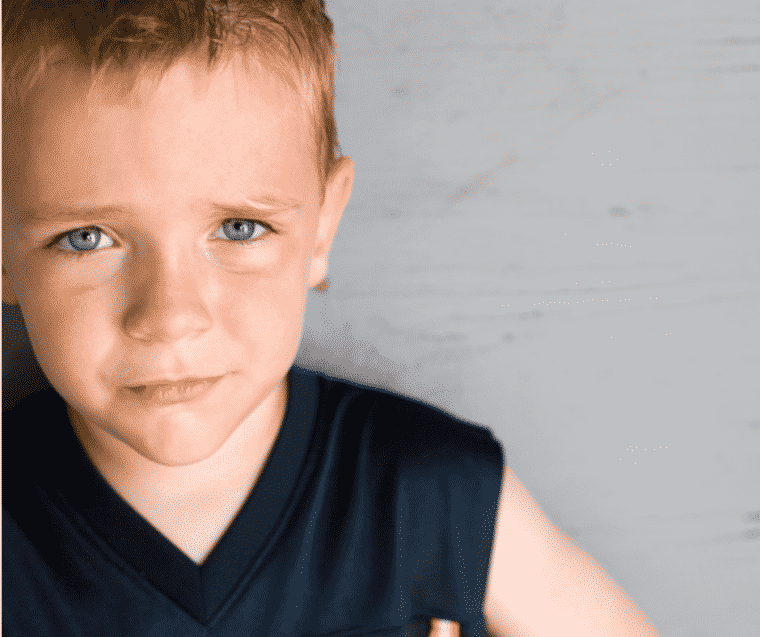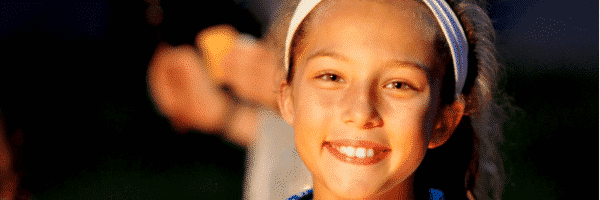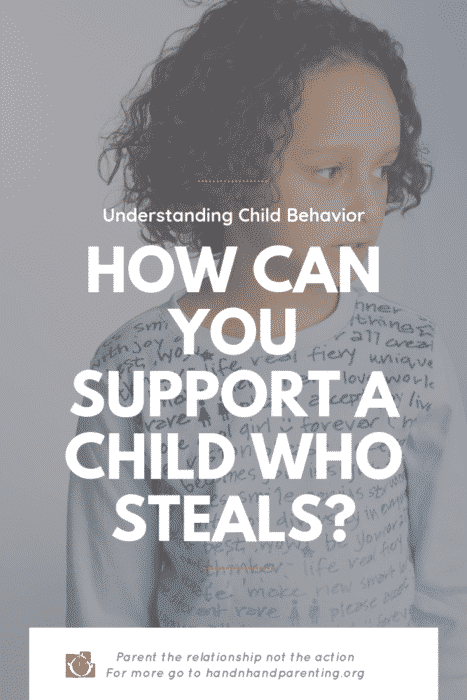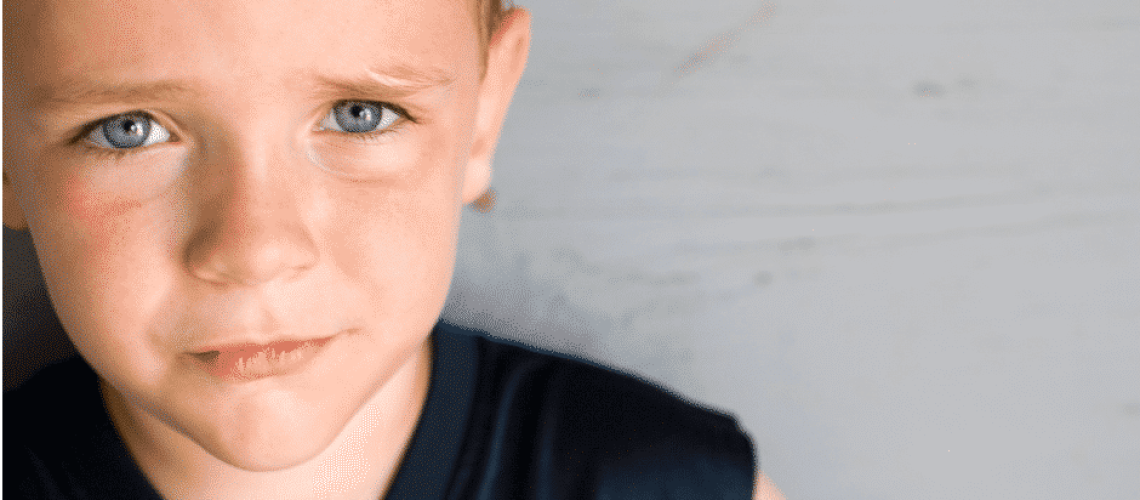Is your child stealing? Here's the surprising and respectful way one dad handled his daughter's stealing.

“My daughter stole $20 from her uncle when she was 7 years old. She saw it in a bowl and slipped it into her pocket.
She felt the weight of what she had done, and came and spoke to me shortly after we got home. “Dad, I stole $20 from Uncle, now I'm not sure what to do.”
That innocence and openness are what I've always tried to nourish. I was so moved by the trust she showed me.
The first thing I did was hug her and thank her for telling me. I told her that trust meant everything to me. I wanted her to know that she doesn't have to get it right every time.
Working With The Messy Stuff and Believing in your child's process
It is neither effective nor possible to avoid the mess of life. The goal is to get right into the mess together. This is where the deepest co-learning takes place. We jumped in together.
Learning IS messy.
It can't be otherwise. When we learn, we make mistakes, then analyze and learn from them. We try again and make more mistakes. This is how we evolve consciously.
This is work, messy work.
When we judge the mess rather than work with it, we never get into the deep stuff.
Parenting is deep stuff.
Growing up is deep stuff.
And deep stuff is messy.
I didn't tell her how she should feel, nor did I project any of my own feelings onto her. I didn't tell her stealing was wrong. I held an open, non-judgemental space for her to look inside of herself and see what she found.
I wanted her to know that my love and acceptance of her was unconditional.
The hardest part of all of this is that I knew I had to mean it.
I had to fight against the traditional mindset within me, the mindset that sees a mistake and wants to correct it.
Instead, I recognized that mistakes are a learning process and I trusted her heart to guide her.
There really is nothing more precious or powerful as that trust.
Mistakes are part of our life journey.
I knew that she was unafraid to tell me because she knew from experience she was not going to be judged. She knew I would see her as wonderful and loving in spite of her stealing.
More than “in spite of,” I saw her inner beauty and goodness because of it.
- I celebrated her humanness
- I celebrated her vulnerability
- I celebrated her messy learning
The next time she considered stealing she wouldn't need to hide it from me. What an opportunity for me to help her tune into her conscience! Repeated opportunities to look within move children to find their inner guidance.
I have seen and experienced too many times the damaging results of a controlling and punitive mindset. It creates disconnection and mistrust so much so that the rebellious teen who separates from their parents is almost a given.
I wanted a different result. For that, I knew I had to do things dramatically differently.
Allies: How We Returned The Stolen Note

She closed her eyes and felt inside. I could see her thinking about who she is, what kind of person she wants to be, asking what relationship she wants with herself?
These are hard questions.
She was able to have a true moment with herself because she didn't have to guard against me in any way. She didn’t fear me or feel the need to gain my approval.
It was a beautiful moment of deep self-reflection.
She opened her eyes with a sigh and said, “I don't really like how this feels. I would like to give it back.”
That true moment with the self is so important. Her sense of remorse and her desire to make amends were self-motivated because she didn’t have to live up to my expectations. To me, this is the seed of sustainable integrity.
This decision was impactful because even if she had wanted to keep the $20 I would have supported her. I didn't want to make her feel judged in any way. But I also knew that the conversation wouldn’t end there. The topic wouldn't be closed forever.
And now that she trusted me, she felt safe to include me in her process.
We processed it together. She asked me what she should do and we thought about a wide range of different solutions:
We brainstormed a multitude of ways she could follow up. Some ideas were serious and some were silly.
- Keeping the money and forgetting about it
- Giving it back and apologizing face-to-face
- Giving it to charity if she was too afraid to return it
- Me returning it for her.
I wanted to give her as many options as possible.
It was a creative process and we ended up hatching a plan.
We would visit and I would distract Uncle. She would use the diversion to sneak the money back into the bowl and then we would leave.
When we got to Uncle’s I asked him to show me something on his computer. The two of us went into the back room while my daughter snuck the $20 back into the bowl where she found it. I came out after a few minutes and we left with a feeling of victory, connection and celebration.
This is NOT permissive.
This IS guidance.
A consequence can't even come close to this level of engagement.
She learned the lesson through her own thought process, but she was not alone. I didn’t just stand back, leaving her to her own devices.
I was present with her during her process. I held a space of unconditional acceptance for her to think honestly and feel deeply. I BELIEVED in her learning process so I didn't have to force her. I helped her to see into her own heart.
What I would have given to have grown up with the adults in my life accepting me no matter what.
Read Do Consequences Help Children Learn Better Behavior?
Consequences Taught Me How Not To Get Caught
I had the exact opposite experience growing up. When I was 7 years old my 4-year-old sister told me she wanted me to steal some makeup for her. I felt a rush. It felt like a challenge and she seemed to really want it so I decided to take it.
It was a powerful feeling and power was something I didn’t get a lot of.
When we got home my sister told our parents and they came to my room very upset. I felt betrayed and ripped off. My parents were so angry. My dad marched me back to the pharmacy.
I was told I had to return the thing, apologize and offer to pay for it.
I can still remember shaking as I walked into the store. I can feel the weight of that plastic container in my hand.
I remember the heavy feeling of shame as I looked up at this young salesperson.
I said, “I stole this makeup and I want to pay for it and I'm sorry.”
I wasn’t sorry.
I was ashamed, confused, frightened and angry.
She took it from me and asked: “Why did you steal it?”
I honestly didn't have the words to explain the complex causes that led up to that choice. There were valid reasons stemming from inner pain and disempowerment.
If anybody had taken the time to dig into what I was feeling, what I was yearning for and what I was compensating for, they could have connected with me and helped me process what I was going through.
But nobody did. Nobody would have even thought to do that. So I
just said, “I don't know.”
When I tried to pay for it she didn't want the money.
I insisted and she said “No.”
I insisted again and she said, “No, sweetie it’s really okay.”
When I reflect on it now it's kind of funny because we were arguing back and forth.
I remember it because it was an unexpected moment of kindness amidst all the disconnection.
My dad eventually said “Forget about it Vivek” and we walked away.
Did I learn not to steal? No.
Did I learn that stealing was wrong? No.
I certainly learned that my parents thought it was wrong. That made me want to do it even more!
It also made me work hard to not get caught.
I ended up stealing for years and years. When I got caught and given a consequence it would just roll off my back.
It didn't matter what it was I didn't let it touch me. In fact, it felt somewhat exhilarating to get caught. My heart would race and the adrenaline rush was intense. It also didn't matter if anyone would say that they didn't trust me anymore. That would certainly increase my shame, but shame was largely why I continued to steal.
I didn’t believe I was trustworthy.
I just didn't care.
What I learned experientially from being made to take the makeup back is that when we have power we can force other people to act against their will.
It would have meant so much to have them recognize that I would make mistakes and have them assure me that it’s okay.
If we can help our kids feel loved and supported they will learn to act from compassion instead of fear. This is how we teach responsibility and accountability.
Put Yourself If Your Child's Shoes
Let’s look at an adult situation for example. Imagine if you broke your good friend's phone. Maybe you dropped it or maybe you had a moment of anger and threw it. Either way, you are probably going to offer to pay for it or to contribute at least, especially if it’s a good friend. An important question to ask is, are you paying for the phone because you're afraid that they
might sue you or call the cops?
Or is it because you care about your friend and you respect the relationship?
Is it also because you respect yourself?
This respect for self and others is the true seed of taking accountability, not fear of consequences.
In fact, even if you knew for certain that there would be no consequences, like if your friend said, “Don't worry about it” because they were being kind, even then you might want to pay because you feel a sense of care and responsibility.
It isn’t true remorse when we respond out of fear of consequence. If the consequences disappear, so does our remorse!
I remember the day I realized that I could take any punishment my parents dished out and it would not change a thing.
I hardened my heart to them.
When people operate from empathy and collaboration instead of fear, often they will go to great lengths to care for the other person even when it's challenging. This is one of the great things about humanity. We are capable of powerful acts of kindness and courage.
Teaching Values is Not About Modifying Behavior

This is a whole different way to approach teaching values. It's not about modifying behaviour, but about forming a deeper and more trusting relationship where you can talk fearlessly about difficult things.
That is something that lasts through the hardest of times.
My daughter is now 22 and we're the best of friends. There's a deep respect and trust between us. We are learning partners walking the path of life together. She knows no matter how challenging something is that I will not judge her. She can count on my support and she seeks it out.
It has been worth all the work, the blood, sweat, and tears of compassionate and honest self-reflection, to have this kind of relationship.
I won’t say she never stole anything ever again. She did a few times and we processed it.
We learned and explored life’s different issues together. Stealing did not become a habit. She didn’t need to use it to prove anything.
That is the OPPOSITE of the lesson I needed to help me deal with the stealing.
Kids who are acting in dangerous or self-destructive ways need to feel cared about. I know a part of me stopped believing that caring about others was important.
As parents, we can show our kids that caring is important. We can demonstrate to them that even in pain, even in stress, even in times of struggle, it is possible to be kind and loving. It is possible to choose a compassionate path.
Kids learn way more from a model like this than from 100 lectures.
My stealing went on for more than a decade.
In my mid-twenties I had an epiphany of conscience and realized that wasn’t the person I wanted to be. The stealing and other rebellious “activities” were always a reaction to my unprocessed pain and trauma. My damaged relationship with myself.
Parenting the Relationship, Not Right or Wrong
Let's focus on parenting relationships instead of wrongness. Positive interactions are more effective in influencing our kids in a positive direction, but it requires being conscious of shifting our efforts toward showing acceptance and connection.
This is, of course, very challenging because wrongness is such a deeply ingrained aspect of our society. It is impossible to turn left or right and not have the message of control reflected back to us.
To choose a different way of relating requires effort and attention. The more we look at our old habits of thinking, feeling and acting the more we see how deep the coercive patterns run.
These patterns stretch back generations, culturally and genetically, for thousands of years and that's a heavy weight to press against. The old mindset is strong and will fight to its last breath. That's why I always say this is the Warrior's Way.
It is not easy to choose connection and kindness with our children when they’ve done something we disapprove of. The feeling that we have to give them some sort of consequence is so strong in us.
Read How is It Possible To Parent Without Punishment
A lot of the time it feels like a battle and we are both the hero and the enemy. My teacher once told me “There is no enemy. The only enemy is your mind.”
When the enemy wants me to criticize, I choose to empathize.
I choose to empathize with myself and my child.
As we learn to accept and sit with our own difficult feelings, we are more able to sit with our children in their hardest moments. This is when we can be the most support to them. When they feel we are with them, not above or judging them, they open their hearts and trust our guidance.
We need to help our young people connect to themselves again, to see their worth and their value. That is the foundation of self-respect and self-respect is the foundation of respecting others.
Let's remove all notions of imposed consequences and instead find ways to inspire love and worth in our injured young people.
When we work on establishing this kind of trust and connection, especially in hard times, our kids will come to us when they steal something or make some other big mistake and say, “Hey, I did this and now I need help.”
This trust is the greatest gift we can offer them and the greatest gift we can receive.

Vivek Patel has been teaching Conscious Parenting concepts to families for over 10 years. His daughter is 22 and they're best friends. The ideas he shares have helped mend many relationships between parents and their kid sand bring more peace and harmony to families. He cares deeply about empowering parents to develop more harmonious relationships with their kids. You can find more of Vivek’s writing and videos on his Social Media on Facebook, Youtube and @meaningfulideas on Instagram.
